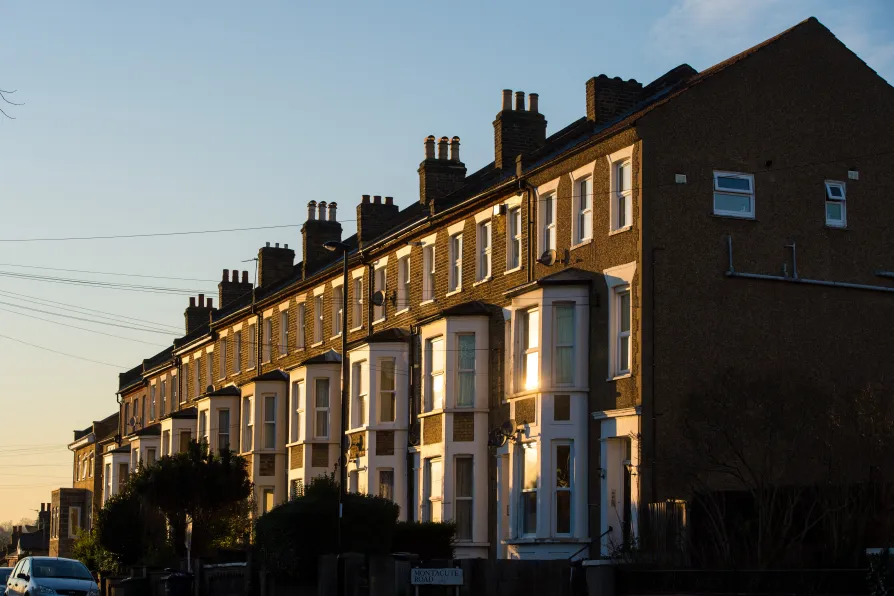Does widespread and uncontrolled use of AI change our relationship with scientific meaning? Or with each other? ask ROX MIDDLETON, LIAM SHAW and MIRIAM GAUNTLETT
GLYN ROBBINS celebrates how tenant-led campaigning forced the government to drop Pay to Stay, fixed-term tenancies and council home sell-offs under Cameron — but warns that Labour’s faith in private developers will require renewed resistance

 Terraced residential houses in south east London
Terraced residential houses in south east London
TEN years ago, David Cameron’s Tory government introduced legislation which, in the words of housing writer Peter Apps, “Would have destroyed social housing completely,” had it not run into one of the most successful grassroots movements of recent memory.
The Housing and Planning Bill was brought to Parliament on October 13 2015. Among its sprawling measures was “Pay to Stay,” an attempt to charge council tenants, with household income above £40,000, market rents.
The government also wanted to introduce mandatory fixed-term tenancies for council tenants. But the reforms provoked a groundswell of opposition. A broad-based campaign, led by council tenants — most of them women — argued the Tory plan was a charter for private developers and a licence for social cleansing of working-class communities. An alliance of tenants, trade unionists, politicians, local councils, faith groups and charities mobilised under the banner “Kill the Bill.”
The character of the campaign was important to its success. There was a sense of urgency because people were threatened with huge rent hikes or losing their homes. Some of the same people had also fought against the “bedroom tax” for the same reasons. But there was also the wider concern about an already desperate housing situation for many, getting worse.
Among the other parts of the legislation was a plan to extend the right to buy to housing association tenants. Reviving Thatcher’s totemic but disastrous policy was a long-held Tory ambition.
But the Bill would have reduced the amount of non-market rented housing even more, by compelling local authorities to sell “high-value” council homes when they became empty, then using the proceeds to pay the discounts for extending the right to buy. Big corporate housing associations, increasingly indistinguishable from private developers, also recognised this threat and joined the opposition to the Bill.
Kill the Bill and its allies embarked on a relentless round of lobbying, leafleting, stalls, letter-writing and meetings. This culminated, on March 13 2016, in a demonstration through central London attended by up to 10,000 people.
Significantly, like the March for Homes just over a year earlier, a much wider — and younger — layer of people joined the protest, particularly hyper-exploited private renters, who increasingly see a revival of council housing as the answer to their misery.
Despite this, the legislation received royal assent on May 12 2016 — and “Kill the Bill” became “Axe the Act.” And almost as soon as the Act became law, it started to disintegrate.
In November 2016, the government dropped “Pay to Stay.” One of the councils that had been most prominent in supporting the campaign against it, Camden, commented: “Pay to Stay would have been a brutal tax on our tenants who work to support their families. The prospect created massive insecurity for social tenants who face a London-wide housing crisis — good riddance, it’s gone. This hard-fought change is a major victory for our tenants.”
Soon after, the extension of right to buy, the scrapping of permanent secure tenancies and the selling-off of empty council homes were also abandoned. Another part of the Act, so-called Starter Homes, subsidised with public money, have never been built.
One feature of the Act that has been implemented is the freedom it gave housing associations (correctly known as private registered providers) to adopt even more commercially oriented activities. This drift away from their original social purpose had already been obvious before the Act, but it was given more impetus and remains a serious concern.
But the role of big housing associations is only one factor in our chronically broken housing system. Above all, successive governments have failed to adopt a long-term plan for adequate investment in genuinely affordable rented homes, which in practice, usually means council housing with social rents.
Instead, they have placed unconditional faith, often backed with public subsidies and public land, in private developers to build the homes we need. Tragically, the current Labour government seems doomed to repeat the mistakes of the past, only tinkering at the edges of the problem.
Meanwhile, every day brings more evidence of the urgent need for a fundamental change of direction. Scores of councils are facing bankruptcy because of the cost of temporary accommodation, where record numbers of children are now condemned to live, with inevitable consequences for their physical and mental health. The government has committed to spending up to £80 billion on weapons for a fictitious war, justifying this as fulfilling its first responsibility to “safeguard the lives of its citizens.”
But there has been no mention by Keir Starmer of the fact that living in temporary accommodation has contributed to the actual deaths of 74 children in the last five years, or the lost lives of Awaab Ishak or Grenfell, and many more, all victims of a housing system based on corporate greed.
But the truth is, we can no more look to the government and politicians to solve the housing crisis than private developers, unless they come under huge popular pressure. That was the critical lesson of the campaign against the Housing and Planning Act. As a result, council and other social rented housing have survived to fight another day.
But it will take a mobilisation on a similar, or even bigger, scale to repair the damage done by five decades of neoliberal housing, and win good-quality, truly affordable, secure and energy efficient homes for all.
All these issues and more will be discussed at a special event to mark 10 years since the fight against the Housing and Planning Act, being held at London Metropolitan University on June 28. Speakers will include Jeremy Corbyn and Peter Apps, with more to be announced. All welcome. Tickets can be booked at https://tinyurl.com/FightHousingAct. Contact g.robbin@londonmet.ac.uk for more details.

Our housing crisis isn’t an accident – it’s class war, trapping millions in poverty while landlords and billionaires profit. To solve it, we need comprehensive transformation, not mere tokenistic reform, writes BECK ROBERTSON













